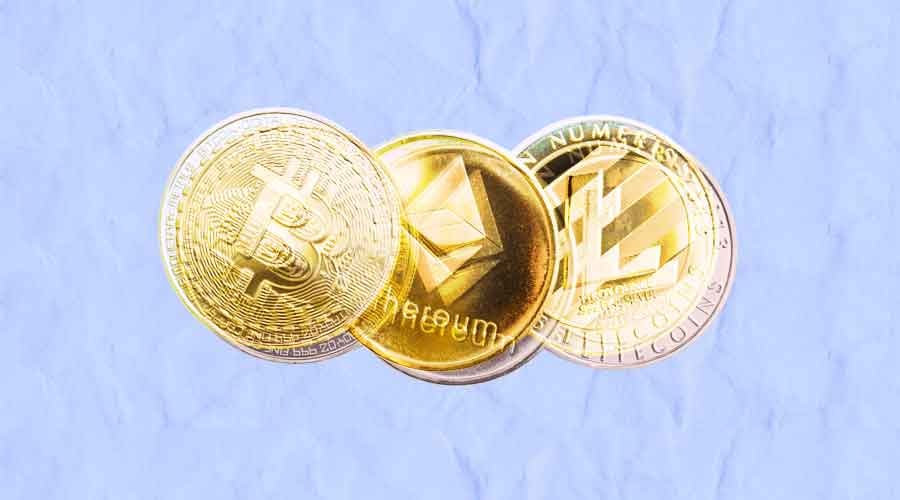The Rise of Altcoins: Exploring Alternative Cryptocurrencies

- The Evolution of Cryptocurrency Beyond Bitcoin
- Understanding the Diverse World of Altcoins
- Exploring the Potential of Alternative Cryptocurrencies
- The Impact of Altcoins on the Cryptocurrency Market
- Key Differences Between Altcoins and Bitcoin
- Navigating the Risks and Rewards of Investing in Altcoins
The Evolution of Cryptocurrency Beyond Bitcoin
Cryptocurrency has come a long way since the inception of Bitcoin. As the popularity of digital currencies continues to grow, so does the variety of options available to investors and users. Altcoins, or alternative cryptocurrencies, have emerged as a diverse group of digital assets that offer unique features and functionalities beyond what Bitcoin can provide.
One of the key advantages of altcoins is their ability to address specific needs and challenges that Bitcoin may not be able to solve. For example, Ethereum introduced smart contracts, which allow for the execution of self-executing contracts with the terms of the agreement directly written into code. This innovation opened up a whole new world of possibilities for decentralized applications and automated transactions.
Ripple, another popular altcoin, focuses on facilitating cross-border payments and remittances. Its network enables fast and low-cost transactions, making it an attractive option for financial institutions looking to streamline their operations. Litecoin, on the other hand, offers faster transaction speeds and lower fees compared to Bitcoin, making it a more practical choice for everyday transactions.
As the cryptocurrency market continues to evolve, we can expect to see even more altcoins entering the scene, each with its own unique value proposition and use case. From privacy-focused coins like Monero to stablecoins pegged to fiat currencies like Tether, the possibilities are endless. Investors and users alike have a wide range of options to choose from, allowing them to tailor their cryptocurrency holdings to their specific needs and preferences.
Understanding the Diverse World of Altcoins
Altcoins, or alternative cryptocurrencies, have gained significant popularity in recent years as investors seek to diversify their portfolios beyond Bitcoin. Understanding the diverse world of altcoins is essential for anyone looking to explore this exciting and rapidly evolving market.
One of the key characteristics of altcoins is their variety. There are thousands of different altcoins available, each with its unique features and use cases. Some altcoins are designed to improve upon the limitations of Bitcoin, such as faster transaction speeds or enhanced privacy features. Others serve specific industries or niche markets, offering specialized solutions that traditional cryptocurrencies may not provide.
Investors interested in altcoins should conduct thorough research to evaluate the potential risks and rewards of each coin. Factors to consider include the technology behind the altcoin, the team of developers and advisors involved in the project, and the overall market demand for the coin. Diversifying across a range of altcoins can help mitigate risk and maximize potential returns in this dynamic market.
It’s important to note that the altcoin market is highly volatile, with prices often experiencing significant fluctuations in short periods. This volatility can present both opportunities and challenges for investors, requiring a strategic approach to managing risk and capitalizing on market trends. Staying informed about market developments and trends is crucial for success in the altcoin space.
Overall, altcoins offer a diverse and exciting alternative to traditional cryptocurrencies like Bitcoin. By understanding the unique characteristics and potential of different altcoins, investors can position themselves to take advantage of the opportunities presented by this rapidly growing market.
Exploring the Potential of Alternative Cryptocurrencies
As the popularity of cryptocurrencies continues to grow, many investors are looking beyond the well-known options like Bitcoin and Ethereum to explore the potential of alternative cryptocurrencies, also known as altcoins. These altcoins offer unique features and functionalities that set them apart from the more established players in the market.
One of the key advantages of altcoins is their potential for higher returns on investment compared to traditional cryptocurrencies. By investing in lesser-known altcoins with promising technology or innovative use cases, investors can capitalize on the potential for significant growth in value over time.
Furthermore, altcoins often provide a more diverse range of options for investors looking to diversify their cryptocurrency portfolios. With thousands of altcoins available on the market, investors can choose from a wide variety of projects and technologies to support, each with its own potential for success.
While altcoins can offer exciting opportunities for investors, it’s important to approach them with caution. Due to their lower market capitalization and liquidity compared to major cryptocurrencies, altcoins can be more volatile and risky investments. Investors should conduct thorough research and due diligence before investing in any altcoin to mitigate potential risks.
The Impact of Altcoins on the Cryptocurrency Market
Altcoins have had a significant impact on the cryptocurrency market, offering investors a wide range of options beyond the well-known Bitcoin. These alternative cryptocurrencies have introduced new technologies, features, and use cases that have diversified the market and provided opportunities for growth and innovation.
One of the key ways in which altcoins have influenced the cryptocurrency market is by providing alternatives to Bitcoin’s limitations. While Bitcoin remains the dominant player in the market, altcoins offer different consensus mechanisms, transaction speeds, and privacy features that appeal to a broader range of users. This diversity has helped to increase overall market liquidity and stability.
Furthermore, the rise of altcoins has encouraged competition and innovation within the cryptocurrency space. Developers are constantly working on new altcoin projects that aim to solve specific problems or improve upon existing technologies. This competition has led to advancements in blockchain technology, smart contracts, and decentralized applications, benefiting the entire industry.
Altcoins have also played a role in driving adoption and mainstream acceptance of cryptocurrencies. By offering unique use cases and utility beyond just being a store of value, altcoins have attracted users from various industries and sectors. This increased adoption has helped to legitimize the cryptocurrency market and pave the way for its integration into traditional financial systems.
Key Differences Between Altcoins and Bitcoin
When comparing altcoins to Bitcoin, there are several key differences that set them apart. These differences can influence an investor’s decision on which cryptocurrency to invest in. Here are some of the main distinctions:
- Market Capitalization: Bitcoin has the highest market capitalization among all cryptocurrencies, making it the most dominant player in the market. Altcoins, on the other hand, have lower market capitalizations, which can lead to higher volatility in their prices.
- Technology: While Bitcoin was the first cryptocurrency to be created and operates on a proof-of-work consensus mechanism, altcoins have introduced various technologies and consensus algorithms. For example, Ethereum introduced smart contracts, while Ripple focuses on facilitating cross-border payments.
- Use Cases: Altcoins often serve specific use cases or industries, such as privacy-focused transactions (Monero) or decentralized applications (Ethereum). Bitcoin, on the other hand, is primarily used as a store of value or digital gold.
- Community and Development: Each cryptocurrency has its own community of developers and supporters. Altcoins may have more flexibility in terms of updates and changes due to smaller communities, while Bitcoin’s development process can be more conservative and slower.
- Adoption and Recognition: Bitcoin is the most widely recognized and accepted cryptocurrency, with many institutions and businesses starting to adopt it. Altcoins may struggle to achieve the same level of recognition and adoption, although some have gained popularity in niche markets.
Overall, while Bitcoin remains the dominant cryptocurrency in the market, altcoins offer investors a diverse range of options with unique features and use cases. Understanding the differences between altcoins and Bitcoin can help investors make informed decisions when navigating the cryptocurrency market.
Navigating the Risks and Rewards of Investing in Altcoins
Investing in alternative cryptocurrencies, or altcoins, can be a lucrative but risky endeavor. It is essential to navigate the potential risks and rewards carefully to make informed decisions. Altcoins offer investors the opportunity to diversify their portfolios beyond mainstream cryptocurrencies like Bitcoin and Ethereum. However, due diligence is crucial to avoid falling victim to scams or volatile market conditions.
One of the key risks of investing in altcoins is their inherent volatility. These cryptocurrencies often experience significant price fluctuations, which can result in substantial gains or losses for investors. It is essential to be prepared for this level of volatility and to only invest what you can afford to lose. Additionally, altcoins are not as widely accepted as Bitcoin, so liquidity can be a concern when it comes time to sell your holdings.
On the flip side, investing in altcoins can also offer significant rewards. Some altcoins have the potential for exponential growth, outperforming even the most established cryptocurrencies. By conducting thorough research and staying informed about market trends, investors can identify promising altcoins with strong growth potential. Diversifying your cryptocurrency holdings with altcoins can also help mitigate risk and potentially increase overall returns.
When investing in altcoins, it is crucial to be aware of the regulatory environment surrounding these cryptocurrencies. Regulatory changes can have a significant impact on the value and legality of altcoins, so staying informed about the latest developments is essential. Additionally, investors should be cautious of fraudulent altcoin projects and scams that aim to take advantage of unsuspecting individuals.
In conclusion, investing in altcoins can be a rewarding opportunity for those willing to take on the associated risks. By conducting thorough research, diversifying your portfolio, and staying informed about market trends and regulatory developments, you can navigate the world of altcoin investing successfully. Remember to only invest what you can afford to lose and to approach altcoin investing with caution and diligence.




